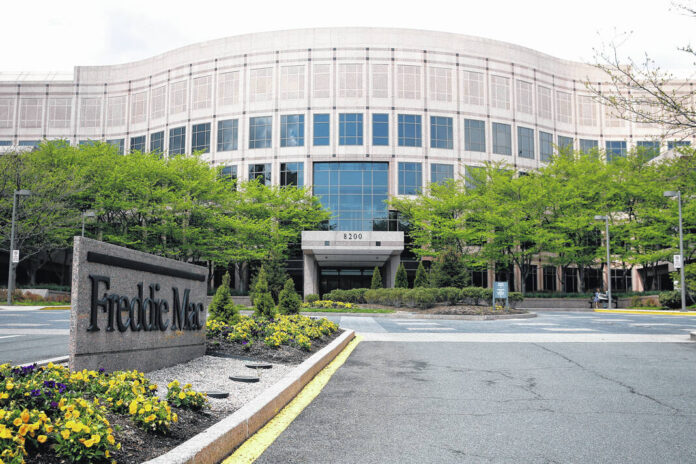Heads up, homebuyers! Big changes have arrived in the way mortgage fees are calculated, and they could offer a windfall — or an unexpected surcharge — for your next home purchase.
Starting Monday, some fees will rise for homebuyers with higher credit scores, while buyers with lower scores will see a fee reduction. In more expensive real estate markets, the change could shift total mortgage closing costs by thousands of dollars.
The move is part of a broader effort by the federal government to “increase support for borrowers historically underserved by the housing finance market.” That includes people of color who have long faced discrimination in homebuying. Still, borrowers with lower credit scores will, for the most part, still pay much larger fees than those with higher scores.
Felicia Mares, a real estate agent in Oakland, California, said the change is a net positive. She said many of her clients with lower credit scores struggle to pay the steep closing costs that come with the Bay Area’s exorbitant real estate market.
“If anything, this is just an overdue balancing act for making it a little more affordable for those who need the help the most,” Mares said.
Many factors beyond credit scores go into determining closing costs, which can make up between 3% and 6% of a home loan. The updated fees are just one of those costs, and lenders can structure home loans in different ways to balance out the higher charges.
Even so, real estate experts say many buyers will feel the impact of the increases in one way or another. And they are coming at the same time that typical mortgage rates have risen to more than 6% over the past eight months, spiking monthly payments.
“I have a feeling it’s going to be passed on more to the consumer, which kind of sucks because everybody’s getting squeezed at the moment,” said Brett Nicoletti, a mortgage loan officer with Academy Mortgage in Los Gatos, California.
The updated fees — meant to offset the risk of borrowers going into default — will apply only to mortgages backed by Freddie Mac and Fannie Mae. The quasi-governmental entities buy and sell the majority of home loans in the U.S. Their “conforming loans” generally come with lower interest rates than those not backed by the two entities.
In all Bay Area counties except Sonoma, Napa and Solano, conforming loans can’t exceed $1,089,300 for a single-family home. With the Bay Area’s median home price hitting $1.23 million in March, conforming loans aren’t an option for many local buyers and therefore new fee rules won’t affect them.
How much could mortgage fees shift?
A buyer who makes a 20% down payment with a credit score of 660 — considered a “fair” score — would see their fee dip from 2.75% to 1.875%, for example. For a $1 million home loan, the change provides a $8,750 discount, reducing a fee of $27,500 to $18,750.
Another buyer, also making a 20% down payment, who has a credit score of 740 — considered a “very good” score — would see their fee climb from 0.5% to 0.875%. For a $1 million home loan, the fee would increase by $3,750 to $8,750.
The more money a buyer puts down, the lower the fee. A buyer with a 660 credit score making a 30% down payment, for instance, would see the fee drop to 0.75%. With a 40% down payment, they wouldn’t pay a fee at all.
To reduce the higher charges for some buyers, lenders can raise the mortgage rates they offer and cover some of the upfront costs themselves. But that still increases the overall cost of a loan. “You have to take into consideration how much leeway lenders have in eating some of that,” Nicoletti said.
In Washington D.C., some lawmakers are pushing back on the change. In a letter to the head of the Federal Housing Finance Agency, Republican Reps. Patrick McHenry of North Carolina and Warren Davidson of Ohio demanded the agency reverse the new rules — which they argued “amount to a tax on all creditworthy … homebuyers to subsidize borrowers with riskier loans.” They threatened legislation to repeal them.
In response, agency Director Sandra Thompson denied the move is a subsidy. She said the agency is instead aiming to “more accurately align pricing with the expected financial performance and risks of the underlying loans.”
Whatever ultimately comes of the brewing fight, maintaining good credit will still give buyers a leg up on owning a home.
“The fact remains true that the better your credit is, the better your rate is going to be,” Mares said.







